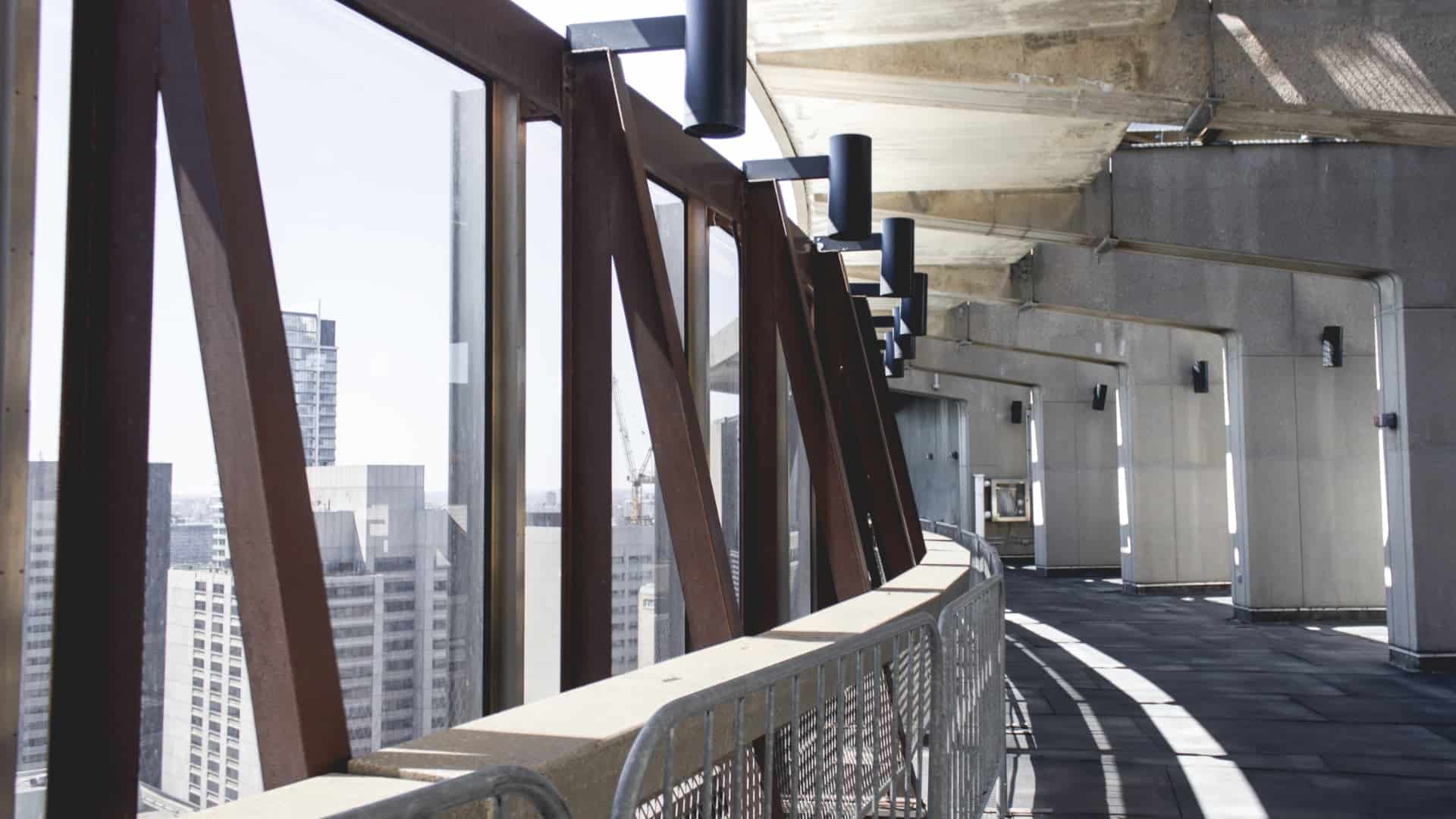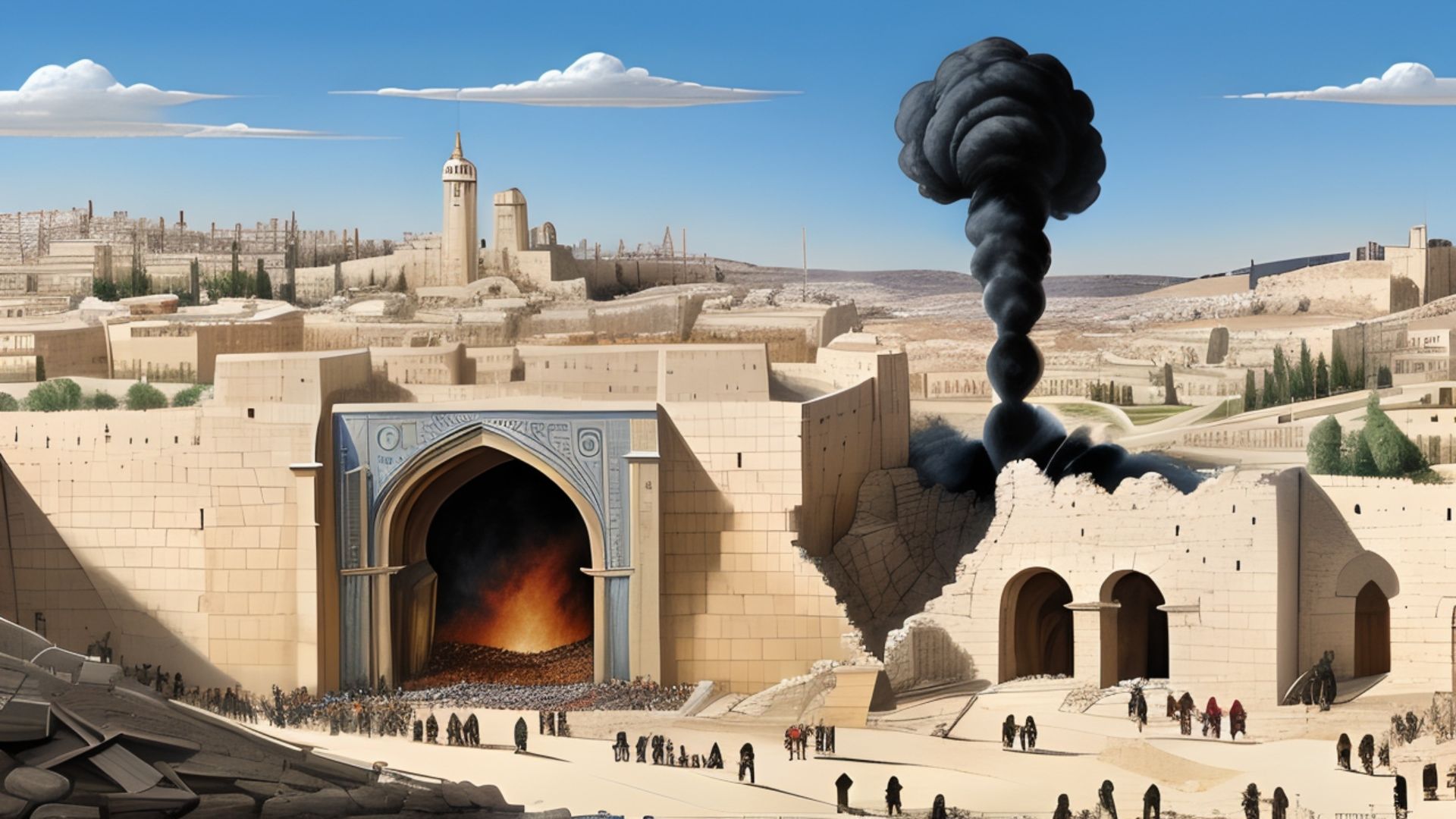Our Calling in Our Culture (Jeremiah 29:4-14)

Big Idea: We live in a hostile culture. Don’t assimilate or fight. Settle in, bless, and trust God to bring you safely home.
It finally happened.
From the very beginning, God had made a covenant with his people and promised them all kinds of blessings if they kept the covenant, but if they didn’t he warned them about the curses they would experience. They’re awful. You can read them in Deuteronomy 28. One of the covenant curses was this: “You shall father sons and daughters, but they shall not be yours, for they shall go into captivity” (Deuteronomy 28:41).
In 587 B.C., Babylon attacked Jerusalem. Babylon was the world superpower at that time, the dominant military force. They crushed Jerusalem. They destroyed the temple, destroyed the city, and ruined their economy. They took the top people in that society — the priests, rulers, court officials, skilled workers and artisans — and took them captive to Babylon. They left only the poor behind. They expected these people to assimilate to Babylonian culture, to leave behind their Hebrew identity and assimilate. It was a way to not only conquer Israel, but to blend their culture and beliefs so that the Hebrew culture and faith no longer existed. They found their postal code on Satan’s side of the street.
How would you respond? To make it even more confusing, we read in verses 8 and 9 that some in exile said not to worry, that they would soon be back to Israel before long, that this was a very temporary blip before things got back to normal.
Pause here. How would you respond? Do you dig in and fight? Or do you settle in and blend into the new culture that is hostile to your faith?
How we answer this question matters so much. We do not live in exactly the same situation as these people did, but there are a few similarities. We live in a culture that is increasingly hostile to the Christian faith. There is tremendous pressure on us to blend in and assimilate. It is not easy to maintain our identity and faith when culture is doing everything possible to get us to adopt their values.
We’re in a very similar position. Years ago, the ancient theologian Augustine wrote about the city of God and the city of man — two distinct groups of people, one opposed to God and his people, and the other group who live for God and who are loved by him. For all of history, these two groups have been opposed to each other.
The question is: how should we respond? The two most common ways to respond are:
- to assimilate — to blend in and lose our Christian faith
- to fight — to dig in and prepare our battle against culture
I see those two responses all over the place. But Jeremiah provides us with a better way to respond.
Here’s what he says.
First: Settle in even though you’re in the City of Man.
Listen to what God says through Jeremiah in verse 4 to 6:
Thus says the LORD of hosts, the God of Israel, to all the exiles whom I have sent into exile from Jerusalem to Babylon: Build houses and live in them; plant gardens and eat their produce. Take wives and have sons and daughters; take wives for your sons, and give your daughters in marriage, that they may bear sons and daughters; multiply there, and do not decrease.
Here’s what he says: look at where God has placed you, and realize that you are not there by accident. Don’t put in time while waiting for God to move you somewhere better. Live where God has placed you, even if it’s not where you thought you’d be.
For the people in exile, Jeremiah wanted them to know they would be there for a while. The exile was going to last 70 years. That is a long time. When I go to a hotel, I know I’m only going to be there for a few days. That changes how I live there. But there’s a difference between a temporary stay and a prolonged presence. If you are going to stay somewhere for a while, settle in. Perhaps God has you there for a purpose.
This is such an important principle. I have a couple of friends who moved in to a condo in Etobicoke. One of them never thought that she would live in a big city, never mind a condo in a big city. But God placed her there, and she began to wonder what God might do as she lived there.
She and a friend started inviting neighbors over. She writes:
Nothing was off topic — ours was not the sort of gathering that had rules against talking politics, religion, or weight loss programs. Rachel and I only had one rule — everyone was welcome…
Commitment and consistency, an abundance of food and drink, an open door, and plenty of prayer. All of these things helped to transform a group of strangers into a community.
God began to work. They met Brian, a gay man who doesn’t believe in Jesus, even as a historical figure; Yolanda, who sometimes ignored social cues and resisted friendship; and Fran, who passed away to everyone’s surprise. My friend wrestled through boundaries, her own motivations, how to relate to those who see the world differently, and mostly how to love those God put in her path.
She took the command to love our neighbors seriously. She leaned into love, even when it wasn’t easy.
What if God has strategically placed us where we live right now? What could God do as we inhabit where we live and begin to be salt and light exactly where God has placed us? What if we settled in, believing that God has places us where we are for a reason? Live as resident aliens. You’re not at home, but learn to live your normal life in exile. Living an ordinary life for God’s glory — things like building a house, raising a family, planting gardens, and working — can make a huge difference as we live in the City of Man.
Settle in. “Let your light shine before others, so that they may see your good works and give glory to your Father who is in heaven” (Matthew 5:16). But that’s not all.
Second: Seek the blessing of the City of Man.
Remember I said that our two main options are to assimilate or to fight? There’s a third option, and it’s the one Jeremiah gives us. Read what he says in verse 7: “But seek the welfare of the city where I have sent you into exile, and pray to the LORD on its behalf, for in its welfare you will find your welfare.”
The word welfare is a powerful one. It’s the Hebrew word shalom. It is, as Christopher Wright says, “a wonderfully broad word. It goes beyond peace as the absence of conflict or war, to all-around welfare or well-being. It speaks of wholeness of life and the kind of prospering that the Old Testament included in the blessing of God as the fruit of covenant faithfulness.” Seek the shalom, the peace, wellbeing, contentment, wholeness, health, prosperity, safety, harmony, happiness, and rest of the city. When Babylon thrives, you will thrive.
Hold on a minute. How could Israel bless this world power that had just destroyed their homeland and their people? This would have been very hard advice to accept.
The more we feel opposition from the world around us, the less at home we feel, the more important this command is for us: to bless those around us. Not to assimilate, not to fight, but to bless. “The people of God exist in the world to bring the blessing of God, the presence of God, the power of God, into the public arena – even in the heart of enemy territory.” (Wright)
Phil Ryken explains what this can look like practically:
God hereby commands Christians to do anything and everything to further the public good. Seeking the peace of the city means being a good neighbor. It means shoveling the sidewalk. It means cleaning the street. It means planting a tree. It means feeding the poor. It means volunteering at the local school. It means greeting people at the store. It means driving safely and helping people with car trouble. It means shutting down immoral businesses. It means embracing people from every ethnic background with the love of Christ.
But it goes even farther than that. The biggest blessing we want to give others is the blessing of experiencing the shalom that comes from what Jesus has done for us: that although we deserve nothing but judgment, God has lavished his grace on us and made us his family, forgiving our sins and adopting us and making us his own. To seek the peace of the city means to pray and work so that people see the beauty of relationship with Jesus. It means that we pray, and show and tell the gospel.
One of the best ways to do this is mentioned by Jeremiah: pray for the city. Pray for its leaders. Pray for the businesses. Pray for the schools. Pray for the people who live there. Plead with God for the place where you live.
Settle in even if you’re in the City of Man. Don’t assimilate or fight, but bless. Work at being a good neighbor, and seek the welfare of the place where God has placed you.
Settle in and bless. But there’s one more thing.
Trust God and his purposes.
It is not easy to live in Babylon. You sometimes wonder what God is up to. It is easy to start to wonder how God could leave you in a place where it’s not easy, and where people are so opposed to your faith. It’s hard to live in exile.
If you know what I’m talking about, verses 10 to 14 are so encouraging. We often take them out of context. Hear them in with the idea of struggling to live in exile feeling like you don’t quite fit because you are living in the City of Man:
“For thus says the LORD: When seventy years are completed for Babylon, I will visit you, and I will fulfill to you my promise and bring you back to this place. For I know the plans I have for you, declares the LORD, plans for welfare and not for evil, to give you a future and a hope. Then you will call upon me and come and pray to me, and I will hear you. You will seek me and find me, when you seek me with all your heart. I will be found by you, declares the LORD, and I will restore your fortunes and gather you from all the nations and all the places where I have driven you, declares the LORD, and I will bring you back to the place from which I sent you into exile. (Jeremiah 29:10-14)
God’s message to the exiles in Babylon was: I have not abandoned you. I have to lost control of this world. I still have my hand on your life. I am still with you. As you live in exile, know that one day I will bring you home.
Here’s what I would summarize this: We live in a hostile culture. Don’t assimilate or fight. Settle in, bless, and trust God to bring you safely home.
How do we live in Satan’s postal code? How do we live in the City of Man? Don’t assimilate. Don’t fight. Settle in. Bless. And know that God is working out his purposes, and he will bring you safely home.



